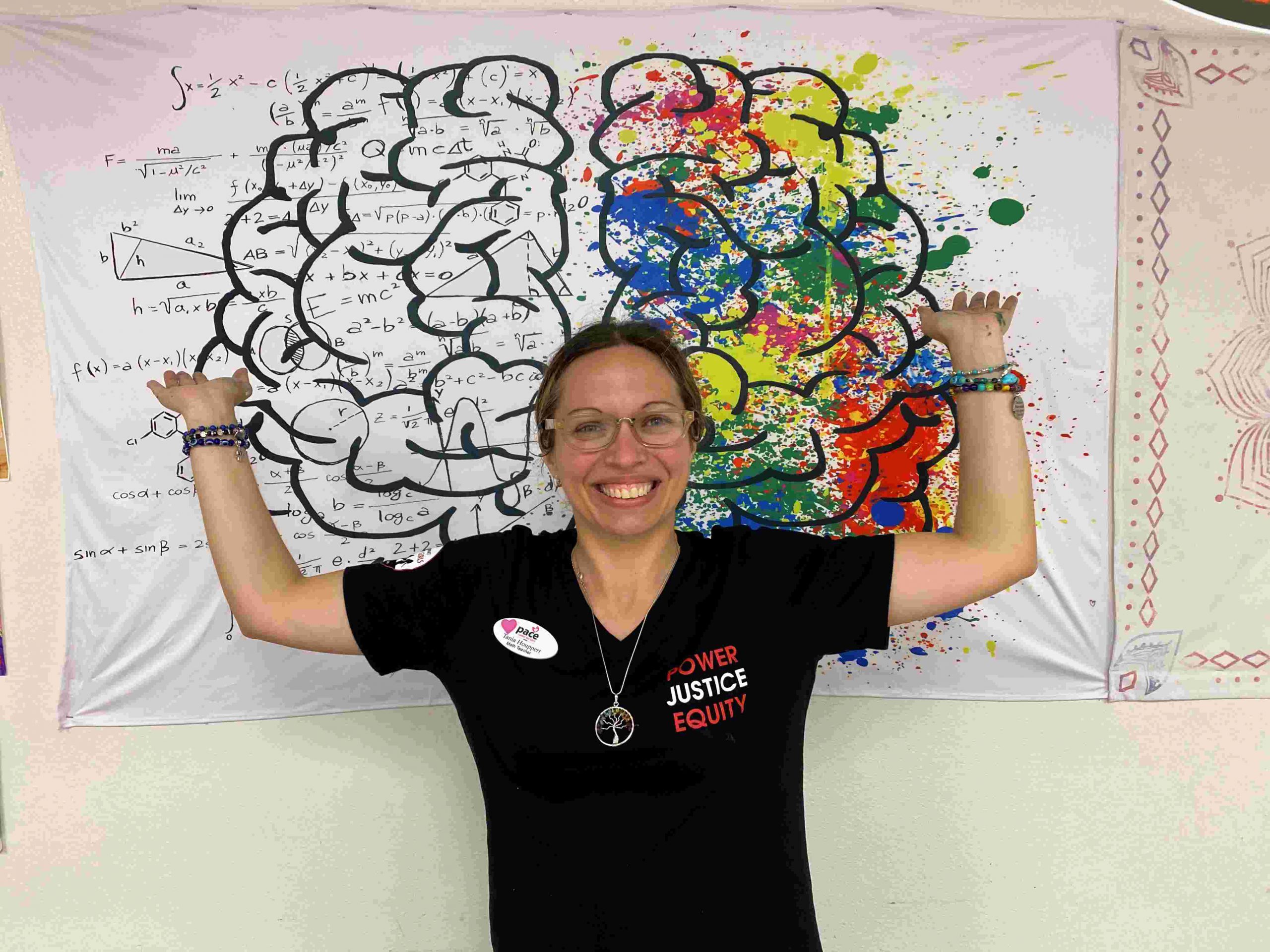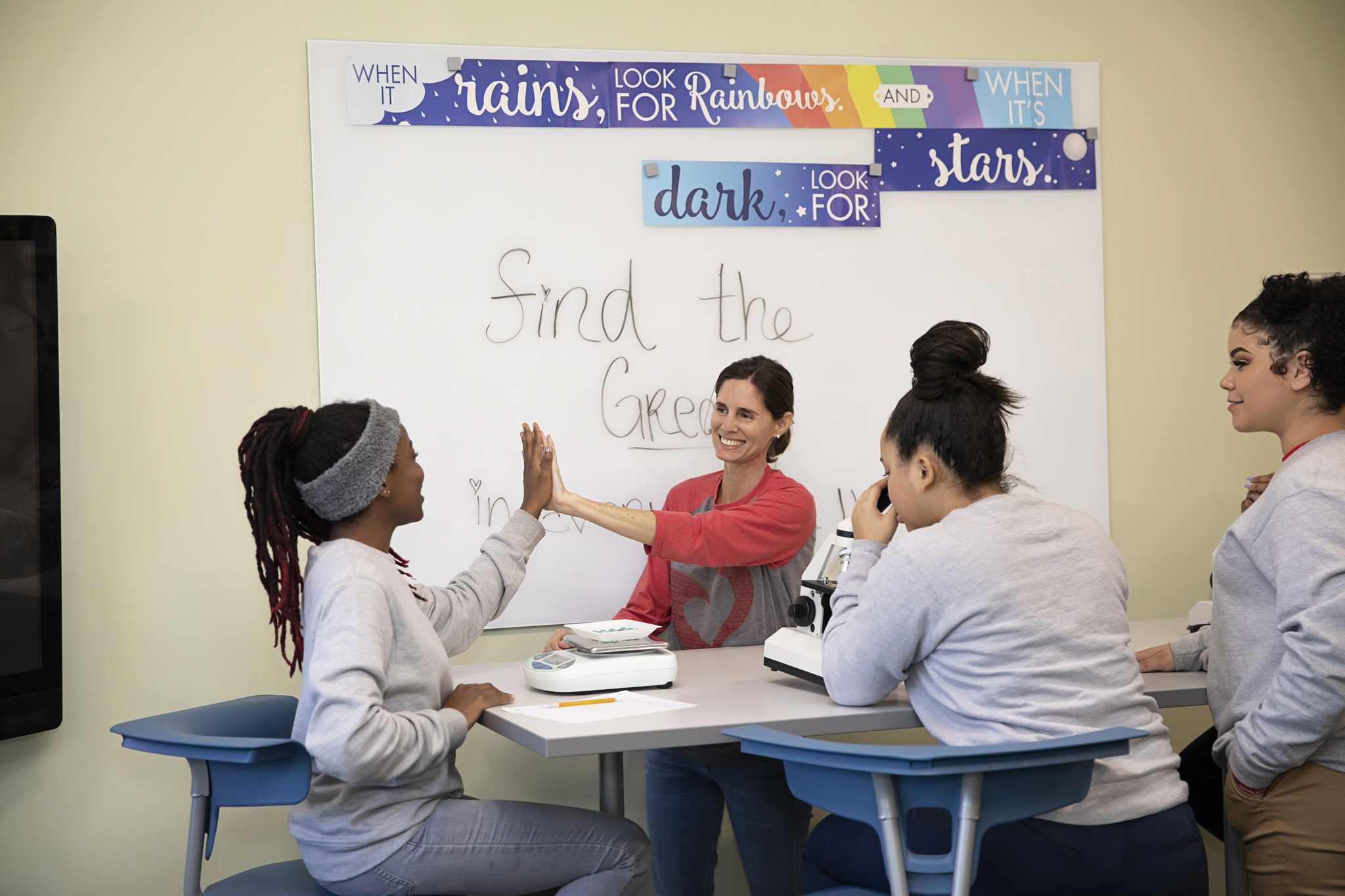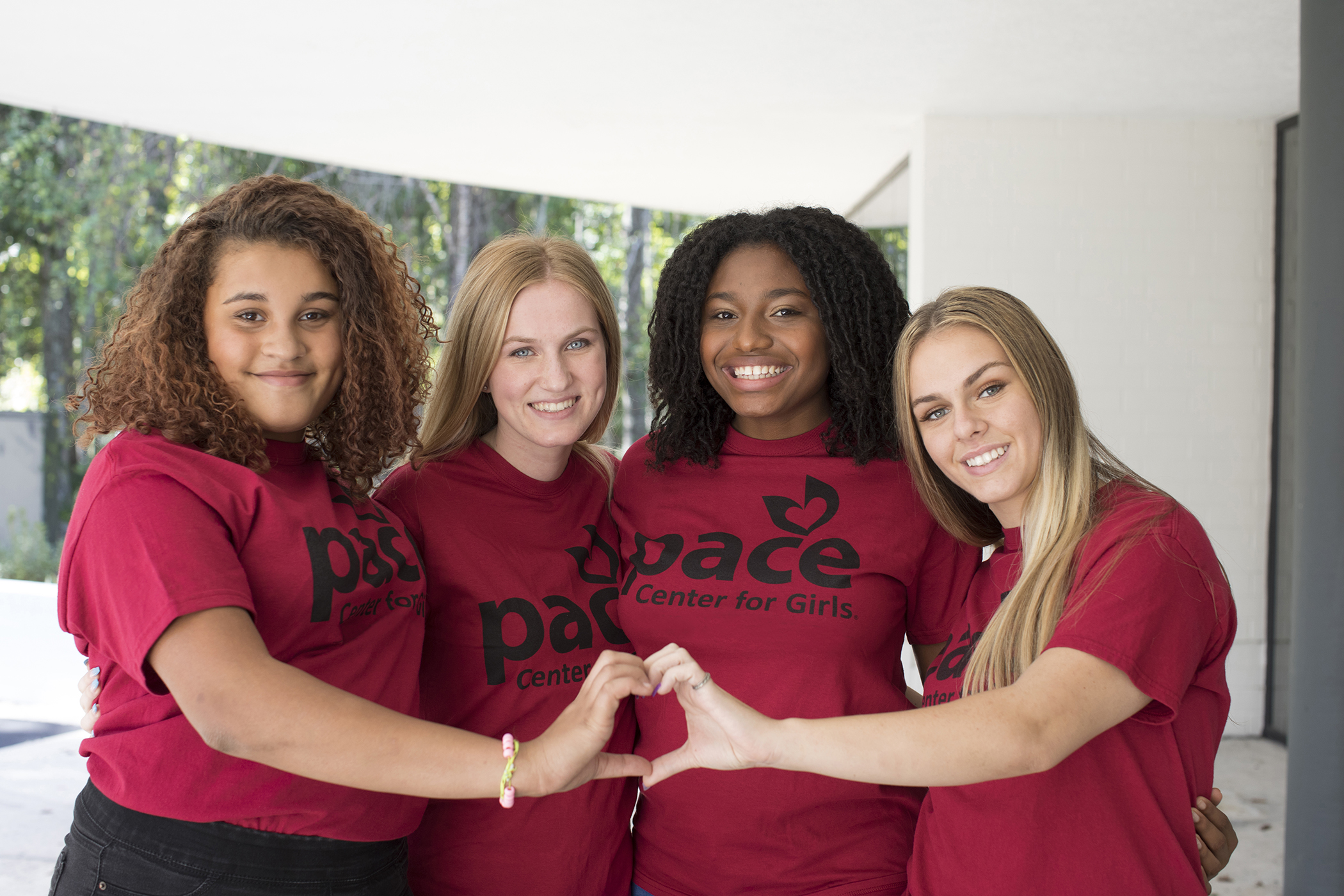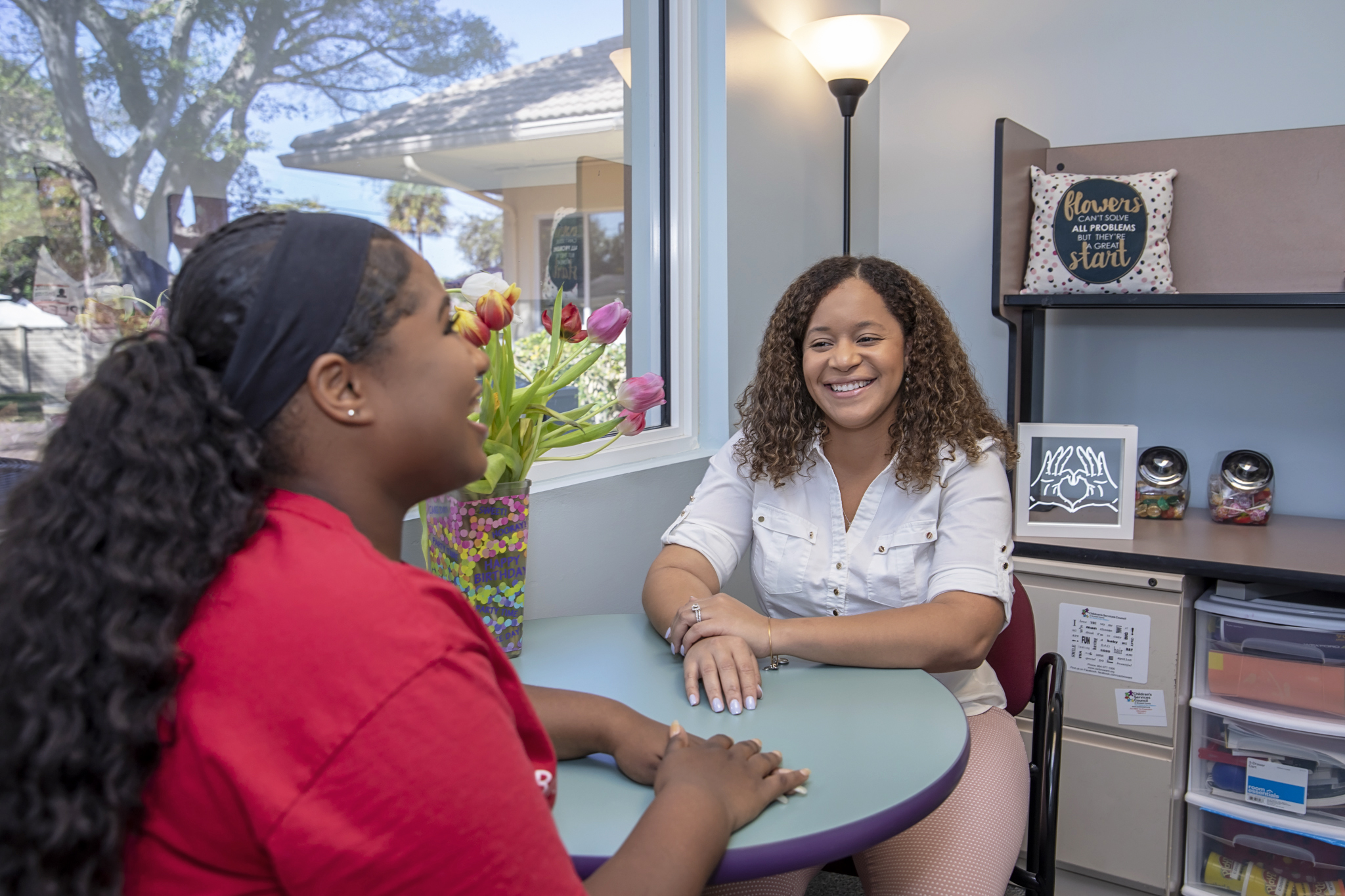Essential Workers Celebrated During Women’s History Month
As Pace Continues to Provide Healing and Promote Hope
Women’s History Month serves as a time to commemorate and celebrate the contributions and accomplishments of women. The 2022 theme — providing healing and promoting hope — is a tribute to the tireless efforts of frontline workers during the pandemic and the recognition of the numerous ways women of all backgrounds have provided both healing and hope throughout the pandemic and history.
Educators, counselors and team members at Pace have been on the frontlines for our girls every day as they provide healing and hope for each other, our girls and the communities we serve.
One person at Pace leading this charge is Sultania Houppert, more widely known as Ms. Tania, a math teacher from Pace Polk.
“My calling was always to inspire,” said Ms. Tania. “[Working at Pace] is a calling and something acquired. In order to acquire that wanting to heal and wanting to help, you need to have that support and foundation. We all want to have those opportunities to be heard, and that was a big calling for me. These girls want to be heard and cared for.”
Reflecting on the women who have helped Ms. Tania get where she is today, she noted how her own mother inspired her to give back to the community and make a difference.
“The first and foremost [example of inspiration and care] has been my mother. She has been my nurturer, she has been my rock, and she has been someone who made me feel like I had a voice, which is something that I hope to be able to pass on to all the Pace girls I work with. It’s really awe-inspiring when you come into a classroom, and you see a smile. It’s a gift to know girls feel comfortable in your space and comfortable to learn.”
In addition to teaching math, Ms. Tania serves as an ally and advocate for all the girls and young women at Pace. She noted how Pace’s holistic approach to learning and personalized support through counseling are like no other:
“I’ve never worked at a place [that is able to provide] every resource that a girl is going to need to pursue what she needs. We have to act accordingly to what girls need at that moment. At Pace, we start with the foundation of respecting the girls — and their space, culture, traumatic experiences — which helps them to feel heard. Then, we are able to reinforce that they are heard and supported not just academically but also personally.”
Every day, teachers like Ms. Tania, counselors, administrators, volunteers and community partners listen to our girls, advocate for their physical and mental health, help them thrive and grow, and encourage them to look toward the future. Because of their dedication, countless teen girls and young women have the opportunity to achieve their own success, leading to positive outcomes for themselves, their families and communities. This Women’s History Month and every month, please join us in celebrating Ms. Tania and all the people like her for their continued commitment to create strong girls and strong communities.
Get Involved With Pace and check out our current Open Positions!





